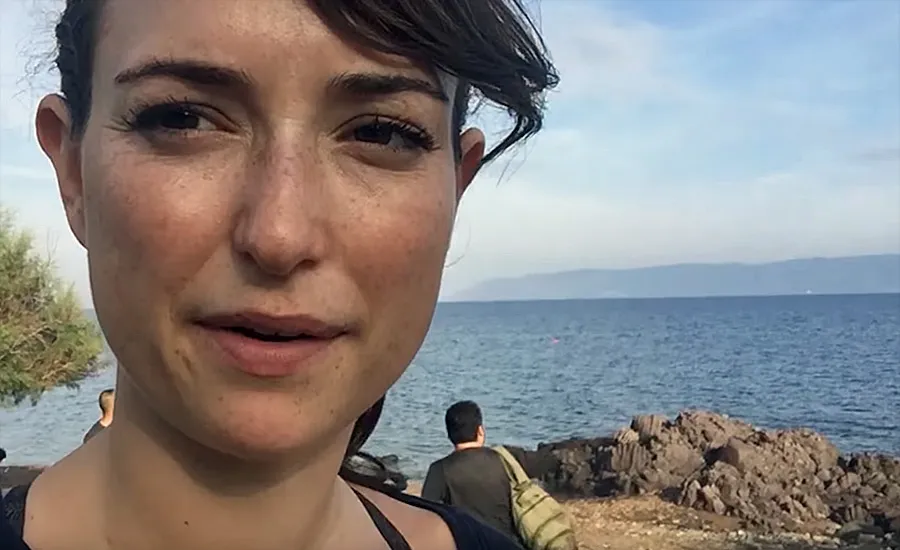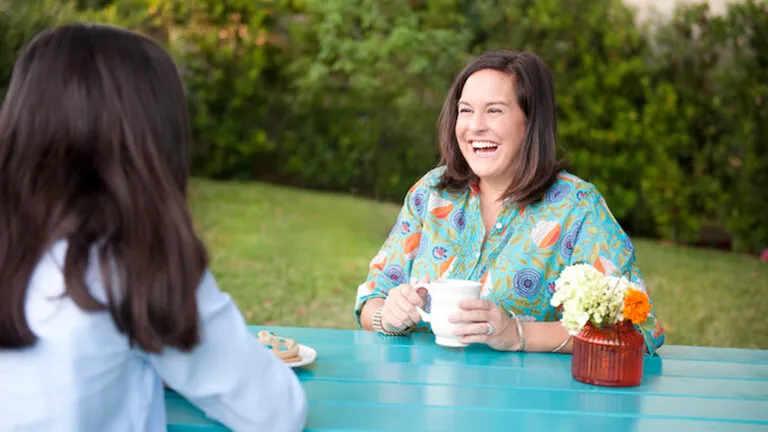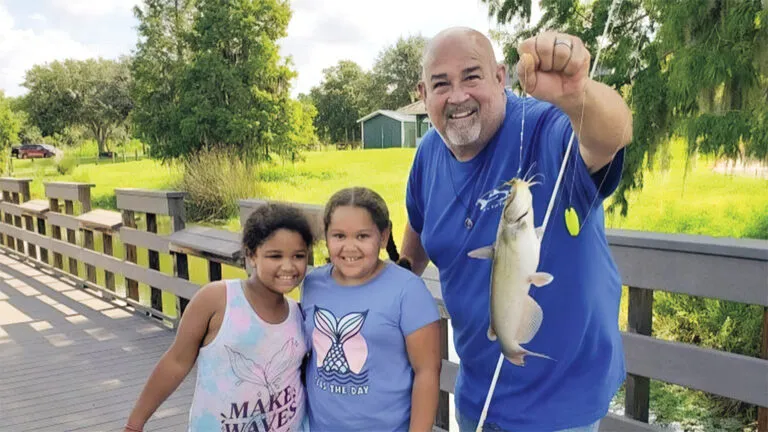Milana Vayntrub is best known as the quirky, lovable character Lily in those comical AT&T commercials.
Now the actress and comedian is using her platform to bring awareness to the global refugee crisis.
Earlier this year Vayntrub launched Can’t Do Nothing, an organization that works with human rights groups on the ground, providing aid to refugees. Using the hashtag #CantDoNothing, the organization encourages people to share how they’re getting involved in solving the social problems around them, using their voice, time or money. More than 320,000 people and counting are participating in the campaign.
READ MORE: THIS VIDEO GAME HELPS KIDS WITH SPECIAL NEEDS
Vayntrub was inspired to start Can’t Do Nothing on a recent trip to Greece. After watching a video of volunteers passing out sandwiches on a beach in Macedonia, she learned how dire the refugee crisis had become.
“There is something really inspirational about seeing people do good that made me also want to take action,” Vayntrub tells Guideposts.org.
Vayntrub skipped her flight back to Los Angeles and, after making a few connections with volunteers via social media, she hopped on another flight, heading to Lesbos, a Greek island off the coast of Turkey that saw an influx of refugees in 2015.
When she arrived on the island, a fellow volunteer gave her a GPS point on a map and simply told her to drive there.
“It was a long drive and you start it by seeing this beautiful ocean over a cliff,” Vayntrub explains. “As you get closer and closer, these little orange dots start appearing along the shore. They look like poppy flowers. When you actually arrive, you see the entire shore line littered with these bright orange life jackets, medicine bottles, sneakers and baby diapers — remnants of life.”
READ MORE: DELILAH’S DROP OF HOPE
Vayntrub wasn’t associated with any of the relief groups already on the ground so she started helping in any way she could – filling her trunk with water bottles, passing out bananas and candy to the kids washed up on shore, gathering emergency blankets and rushing into the water to meet people freezing and terrified from their long voyage.
Sometimes she worked 14-hour days helping strangers who had fled from violence and tyranny feel welcomed and giving them a bit of hope to hold onto.
“It’s strange to say how much I enjoyed it, but I did really have a wonderful time there because it was never about me,” Vayntrub says. “I didn’t have a moment to think about whatever minutiae that was stressing me out back home. It was nice to get out of your head and just give.”
The experience was eye-opening for the actress who, before Lesbos, only saw the refugee crisis through muddled news footage and media reports. Spending one-on-one time with the people helped her to see them in a different light.
“It’s very easy to see people as extras or background in your main story but then when you get to know somebody it deepens your understanding of them and the compassion you have for them, for where they’re from and what they’re going through.”
It also helped her connect with her own roots. When Vayntrub was just two years old, her parents fled the Soviet Union, leaving everything behind to come to America for a better life.
“Seeing the young parents really made me think of my own,” the actress explains. “I had a big perspective shift on what my parents had to go through to give me the luxurious and happy life that I have.”
READ MORE: HELPING HOMELESS VETERANS DRESS FOR SUCCESS
Vayntrub documented her time in Lesbos and shared the footage with family and friends who were eager to learn how they too could help. She created a website where people could find and donate to organizations helping refugees. She asked friends to use the hashtag #CantDoNothing to raise awareness about the refugee crisis and other humanitarian crises around the world. Soon, her desire to help others became a movement.
“I know that sometimes it can feel hard to help and the issue can feel bigger than you,” she says. “I think that makes people feel inactive or disposable or insignificant and that’s really not true.”
Now, Can’t Do Nothing is a full-fledged organization partnering with other groups like the Syria Fund which provides education to children in refugee camps, to get the word out about all of the ways people can donate their time, money and energy to aiding others, even beyond the refugee crisis.
“I want to make Can’t Do Nothing a gateway for people to discover ways to take action about the things they care about,” Vayntrub says. “I hope it’s something that people use to talk about why they can’t do nothing about climate change and why they can’t do nothing about women’s rights and why they can’t do nothing about whatever it is that matters to them.”





